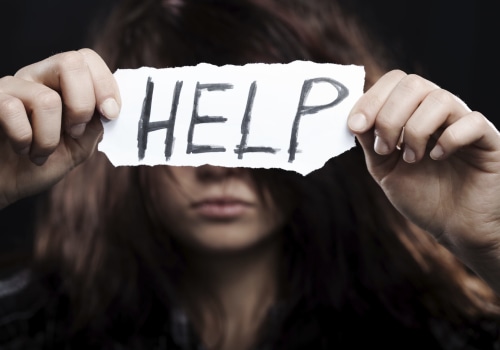Counseling is one of the most important aspects of substance use disorder treatment for many individuals. Cognitive behavioral therapy, family counseling, and other types of therapy can help you stay clean and sober. Psychotherapy can also treat other mental health conditions that often influence substance abuse.
Addiction treatment
centers often use behavioral therapy to identify unhealthy behaviors in a person's life and set goals to overcome them.Once a person completes a treatment program for drug or alcohol addiction, psychiatrists at Langone of New York University offer counseling to help them recover. Psychotherapy, or “talk therapy”, involves meeting with a mental health professional to discuss addiction and any related mental health issues. Our experts can also address other types of addictions, such as gambling, sex and shopping. Unfortunately, solving the problem of drug treatment in the United States is not as simple as requiring all authorized treatment programs to implement cognitive behavioral therapy (CBT), motivational interviewing, or some other evidence-based approach.
This is because some studies have found that what works in the laboratory doesn't always work as well in community settings. The primary treatment for drug addiction for many recovering addicts is counseling. Examples of counseling therapies include cognitive behavioral therapy and family counseling. This goes a long way in maintaining the individual's sobriety.
Psychotherapy is also important for treating co-occurring mental health problems. Psychosocial interventions for the treatment of alcohol and drug-related problems encompass a wide range of treatment interventions, which have diverse theoretical backgrounds. However, the field's broader participation in addiction treatment is crucial to improving outcomes, experts say. The more information the therapist and client can use, the better it will be for treating the person, since they will receive the most appropriate type of care and support as they go through the process of recovering from addiction.
This means that people who provide first-line addiction treatment often don't have the background and experience to do so effectively, says Alan Budney, PhD, an addiction researcher at Dartmouth College. In one of his subsequent relapses, journalist David Sheff had already begun researching a book on addiction and had interviewed some of the world's leading experts in the biology of addiction and treatment. Because addiction can affect many areas of a person's life, several types of treatment are also needed. A problem affecting treatment evaluation in residential rehabilitation programs is that treatment dropout is common.
Psychological researchers such as Feldstein Ewing, Sigmon, Kelly, Budney and others are on the front lines of discovering how to design an effective treatment for addiction. This treatment approach aims to encourage positive behavior by providing positive reinforcement when the patient moves toward treatment goals (for example, people who have depression or bipolar disorder need treatment for the mental condition, in addition to the treatment they receive because of their addiction). Psychosocial interventions can be used in a variety of treatment settings, either as stand-alone treatments or in combination with a pharmacological intervention. Treatments for drug addiction are guided by principles that help health professionals ensure that the treatments provided to people who want to recover from their addiction are effective.
The purpose of psychotherapy in the treatment of addiction is to be able to achieve or maintain sobriety, as well as to prevent a relapse. It's best to talk to an addiction treatment expert to find out which program is best for the type of addiction a person has and its severity. Psychosocial treatments are now considered essential components of any comprehensive substance use disorder treatment program.






